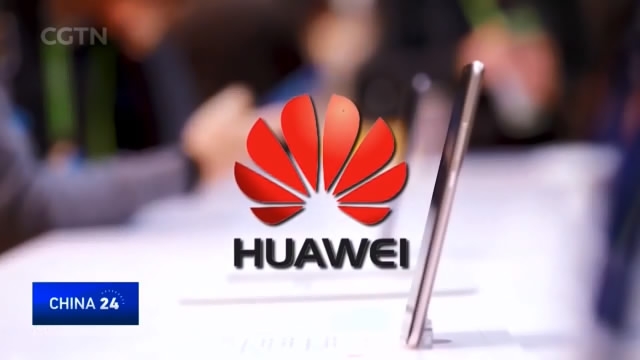
21:20, 16-Feb-2018
Huawei Woes: Chinese electronics giant struggles in the US

Huawei is the second largest smartphone maker in the world, despite the uphill battle in the US market. The company has been blocked from partnering with carriers, based on claims by some US lawmakers that the phones, including its new 5G-capable smartphone, threaten national security. Huawei has also denied these claims. CGTN's Phil Lavelle reports from Los Angeles.
Three big players dominate the world's cellphone market. Only two in the U.S., though. Huawei No way, right now. Dropped by AT&T amid renewed, but still unsubstantiated allegations that the company's phones pose risks to U.S. national security. Effectively blocking the world's second-largest phone maker from getting a foothold here.
PHIL LAVELLE LOS ANGELES "This phone was set to be on sale with the country's second-biggest carrier right now. But AT&T pulled out of its deal at the last minute. Sources claiming there was pressure from Washington."
WILLIAM YU UCLA ECONOMIST "I don't think it's about espionage. But I do think it's more about national security concerns."
PHIL LAVELLE LOS ANGELES "The big question here is whether this is mere politics or if these devices do present a GENUINE security threat. See, they run on Android-and Android does get a bad rap from time to time because of security flaws that can pop up with an open-sourced platform. But we're not talking a little bit of hacking the wording is very strong: we're talking 'espionage' here. Defined as the practice of spying, or using spies, typically by governments to obtain political and military information."
PHIL LAVELLE LOS ANGELES Reporter: "Is this a legitimate concern? Can cellphones ever really be used for espionage?"
PHILIP LIEBERMAN CYBER SECURITY EXPERT "Easily. Cellphones can easily be used for espionage. There are known vulnerabilities in the phones and then there are also backdoors into the phones. And then there are back doors that are in there from the chip manufacturers and then also, there are vulnerabilities from the software itself."
PHIL LAVELLE LOS ANGELES "It's not just a case of Huawei phones. This is something that could affect any company, isn't it?"
PHILIP LIEBERMAN CYBER SECURITY EXPERT "Sure. Today, with smartphones, you have, essentially, full blown computers which would have been mainframes 20 years ago. These systems are very complex. They have vulnerabilities in them. It doesn't matter if the manufacturer is Chinese or American or even South American. It doesn't really matter. The complexity, by its very nature, allows vulnerabilities to get into the system."
PHIL LAVELLE LOS ANGELES "How could Huawei turn this around If they do want to give in to the American government to let them in, what can they do?"
WILLIAM YU UCLA ECONOMIST "One possible solution is that they invest their factory in the United States and then hire a lot of American workers. By doing so, they really benefit the U.S. economy and at the same time, reduce that concern over a national security threat."
Then again, this is a huge market. The world's second-largest. And naturally, Huawei wants in. It'll need to keep this conversation going if it wants to make a mark here. Phil Lavelle, CGTN, Los Angeles.

SITEMAP
Copyright © 2018 CGTN. Beijing ICP prepared NO.16065310-3
Copyright © 2018 CGTN. Beijing ICP prepared NO.16065310-3